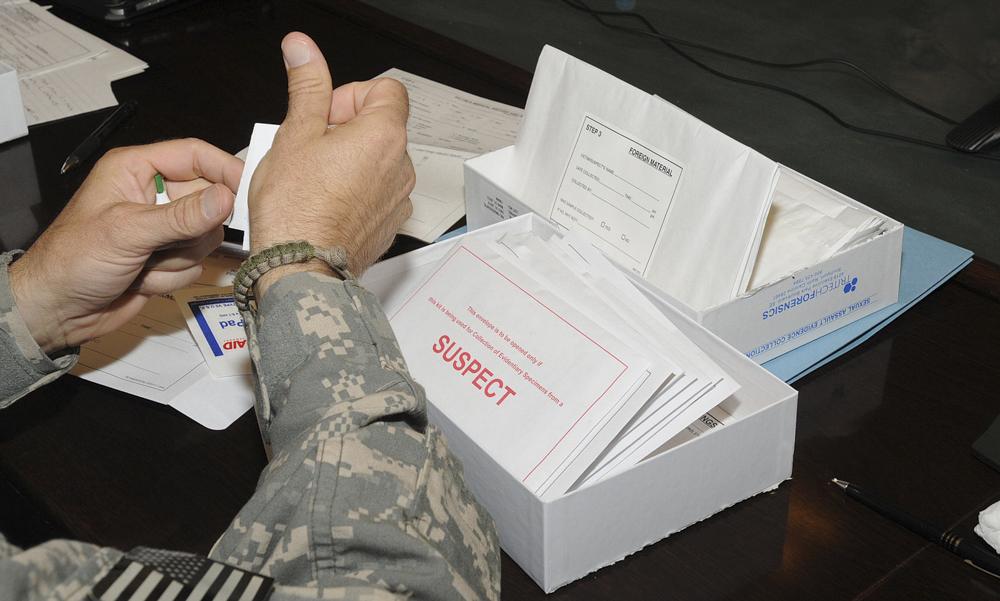
Massachusetts lawmakers have approved legislation that pushes for sexual assault evidence kits to be tested promptly rather than end up sitting on police department shelves.
The new law is part of a comprehensive criminal justice reform bill that the state legislature approved Wednesday. It’s now up to Gov. Charlie Baker to sign or challenge the bill.
The potential law would require evidence kits, which include physical evidence from survivors following their assault, be passed on to the police within three days of notification, after which they must send it to a crime lab within a week. From there, the crime lab has a month to analyze the evidence, if the survivor so requests.
If a survivor is 16 years of age or older and chooses not to report the incident to the police, the sample will not be analyzed, but all survivors under 16 will have their kits automatically tested. These evidence kits will be given to police agencies to be preserved for 15 years under a law that Baker signed in October 2016.
The bill also requires a new tracking system that would allow survivors to know where the evidence kits are at all times.
Erica White, 30, of Fenway, said there should be transparency between the system and survivors.
“Only good can come from allowing a victim to know where his or her kit is going,” White said. “I can imagine what kind of peace of mind knowing where something like that is in the database can do to help the process be a little less hard.”
Katia Santiago-Taylor, advocacy and legislative affairs manager at the Boston Area Rape Crisis Center, said quickening the rape kit testing process and increasing access to the evidence is empowering to survivors.
“If this is information that survivors want, then this is something we should be giving [them],” Santiago-Taylor said.
The bill stems from a goal to reduce the number of untested kits in police agencies, wrote the bill’s sponsor, Rep. Bradley Jones, in an email to The Daily Free Press.
“Currently, there could be a backlog in the testing of kits,” Jones wrote. “We don’t know how big the backlog is yet because we’ve never been able to collect the information accurately … There are a number of reasons that might contribute to the backlog, but a lack of clear, written policies for the testing of kits is likely a significant factor.”
The process of evidence collection is an invasive one, and because of this, lawmakers are trying to make it less stressful for survivors, Jones wrote.
“I also hope that it shows survivors who choose to undergo a very invasive collection procedure in the immediate aftermath of unspeakable trauma, that they are not forgotten and that this Commonwealth takes them seriously,” Jones wrote.
Greg Thistle, 52, of the North End, said his close friend went through immense emotional distress after his daughter had been sexually assaulted at college.
“I’ve never seen him so distraught and angry and sad all at once because he just had no idea how to comfort her and help,” Thistle said. “He told me the process of having the evidence collected was a nightmare, and that it put his little girl through hell.”
The reporting process needs to be streamlined, similarly to how this bill eases the procedure, Thistle said, for survivors to receive justice in a timely manner.
“In the end she wound up not reporting it because she just wanted it to be over,” Thistle said. “We need to make it easier in any way we can for [survivors] to report it.”
Elizabeth Dunne, 37, of Fenway, said she hopes this state initiative will encourage survivors to come forward.
“I would hope that survivors who choose not to report incidences see the initiative our state and government is trying to take and realizes that people are there to support them along the way and that our state hopes to see nothing but justice done,” Dunne said.






















































































































